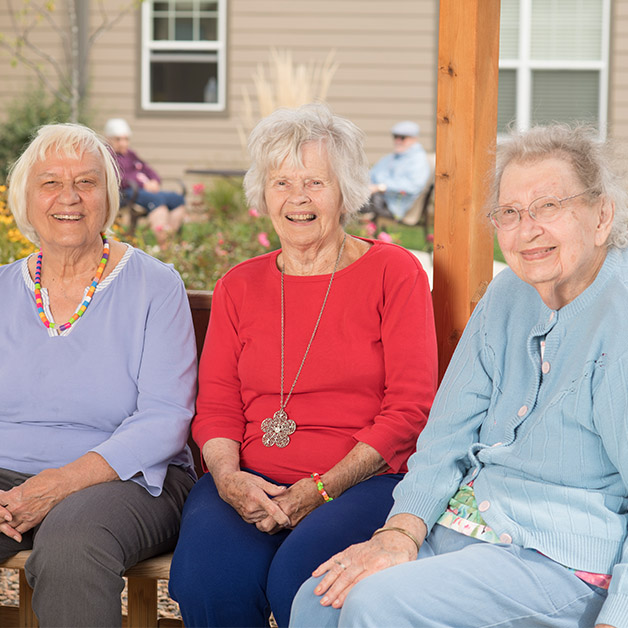Charlotte Memory Care: Safe and Secure Environment for Seniors
Creating a Safe and Encouraging Setting: In-Home Memory Care Basics
Developing a protected and nurturing environment for people requiring at home memory treatment is critical to their well-being and lifestyle. From making sure safety within the space to utilizing effective interaction techniques and applying memory-friendly style elements, there are necessary components that add to an alternative treatment method. By concentrating on producing an encouraging community that provides to the distinct demands of those with memory disabilities, caretakers can considerably boost the daily experiences of their liked ones.

Safe Living Atmosphere
Developing a secure and hazard-free living atmosphere is vital when giving at home memory treatment for people with cognitive problems. Ensuring the safety of the individual with memory loss is essential to stop mishaps and advertise a sense of wellness.
Additionally, it is necessary to mount security functions such as grab bars in shower rooms and handrails along staircases to offer support and prevent accidents. Additionally, making use of modern technology such as activity sensing units and alarms can notify caregivers if the individual wanders or remains in distress. Developing a risk-free living environment also involves applying approaches to stop wandering, such as making use of door alarms or locks to restrict access to dangerous locations. By focusing on safety steps and eliminating prospective dangers, caretakers can give a encouraging and safe and secure setting for people with cognitive problems getting at home memory care.
Efficient Interaction Methods
Executing tailored communication approaches is vital in promoting significant interactions with individuals with cognitive disabilities in the context of in-home memory treatment. Effective interaction plays an important duty in producing an encouraging environment that enhances the well-being and quality of life for individuals with memory issues. When interacting with a person experiencing cognitive decline, it is necessary to make use of basic and clear language, keep a calmness and positive tone, and give aesthetic cues to assist comprehension.
One key strategy is to exercise energetic listening, revealing compassion, perseverance, and respect throughout conversations. Non-verbal hints such as faces and body movement can additionally assist communicate understanding and support. Additionally, making use of memory therapy by talking about previous experiences or making use of music and art can use long-term memories, stimulating connections and boosting interaction.
In addition, integrating routine regimens and regular interaction patterns can supply a feeling of experience and protection for people with memory disabilities. By carrying out these interaction methods, caretakers can establish meaningful connections and advertise a feeling of convenience and count on the in-home memory care setup.
Memory-Friendly Layout
Offered the relevance of producing a supportive environment for people with memory problems through effective interaction methods, the consolidation of memory-friendly design components in the home ends up being imperative in maximizing their everyday experiences and overall health. Memory-friendly style concentrates on boosting security, comfort, and independence for people with cognitive disabilities. Simple alterations can make a considerable difference, such as making use of contrasting colors to boost exposure and reduce complication, incorporating clear signs to aid navigating, and reducing mess to stop sensory overload.
Including familiar components from the person's past, such as personal photos or preferred products, can stimulate favorable memories and develop a feeling of familiarity. By integrating these memory-friendly style elements, caregivers can provide a risk-free and helpful living area that allows individuals with memory problems to maintain their independence and quality of life. Charlotte Memory Care.
Daily Routine Planning
When developing a day-to-day routine for individuals with memory problems, careful preparation is necessary to support their cognitive feature and general well-being. Developing a structured routine can help lower disorientation, stress and anxiety, and complication frequently experienced by those with memory problems.
Flexibility is essential, as some days may need modifications based on the navigate to this site person's state of mind and power degrees. Consistently evaluating and adapting the daily schedule will assist ensure its effectiveness in promoting a comforting and positive environment for individuals with memory difficulties.
Support Group Application
Establishing a robust network of supportive individuals plays a pivotal role in enhancing the top quality of treatment and health for people needing memory support. Member of the family, friends, healthcare specialists, and area sources can all add to creating a solid assistance system. Interaction among these individuals is necessary to make certain that the demands of the private with memory difficulties are met properly.
Relative are often the key caregivers and create the backbone of the assistance system. They supply daily treatment, emotional support, and companionship. It is crucial for household members to look for support and reprieve when needed to stop exhaustion and ensure the most effective feasible look after their enjoyed one.
In enhancement to family support, entailing healthcare experts such as medical professionals, nurses, and specialists can offer specific treatment and advice. These professionals can provide beneficial understandings, medical advice, and help in managing the person's problem.

Verdict
Finally, producing a secure and encouraging setting for people with memory treatment demands is essential for their well-being. By establishing a safe living environment, utilizing effective Charlotte Memory Care communication strategies, incorporating memory-friendly design elements, planning day-to-day regimens, and carrying out a solid assistance system, caregivers can help improve the lifestyle for those with amnesia. These essential parts function with each other to produce a nurturing and empowering environment that advertises freedom and improves general lifestyle.
Creating a safe and secure and hazard-free living atmosphere is critical when offering in-home memory treatment for individuals with cognitive impairments. By focusing on security steps and removing possible dangers, caregivers can give a safe and helpful atmosphere for individuals with cognitive problems receiving at home memory care.
Developing a robust network of supportive people plays a critical duty in improving the quality of treatment and well-being for people requiring memory assistance - Charlotte Memory Care. Communication amongst these individuals is essential to make sure that the requirements of the private with memory obstacles are fulfilled effectively
